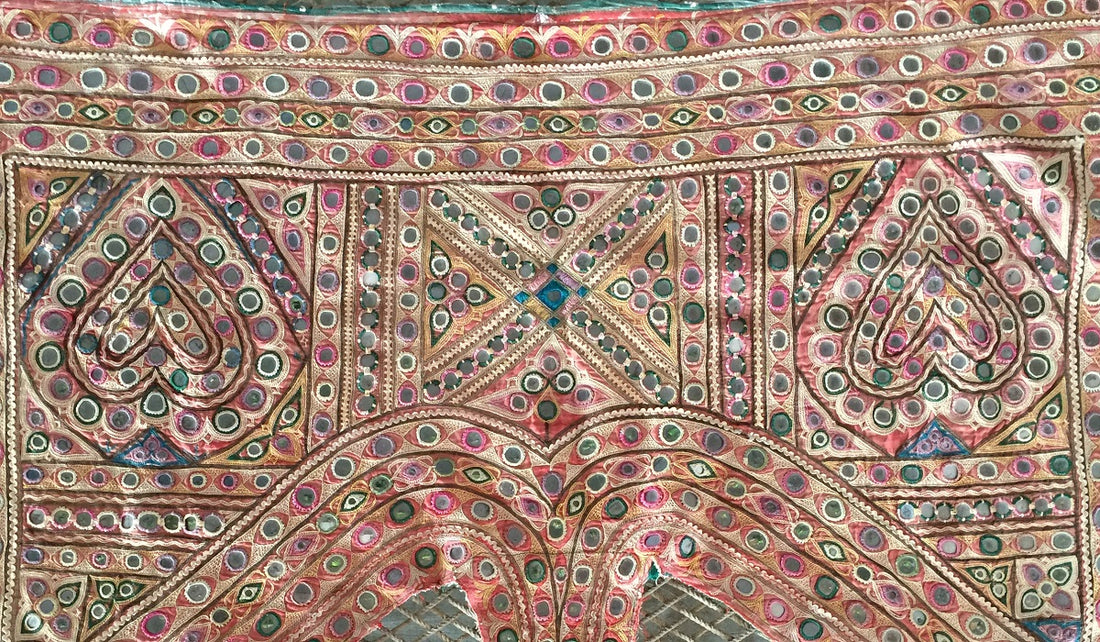
Lexicon of Kutchi Embroidery

In many ways, Kutchi tribal women in India, such as the Ahir, have gained from commercialisation of their embroidery. They have been able to supplement incomes in a drought-prone area and contribute to the overall economic progress of their communities. However, commercialisation’s emphasis on speed and efficiency has eroded fine embroidery skills. As the Ahir integrate into an industrialised society, the traditional purpose of their embroidery is dimming. In this guest post, Shila Desai from Eat Your Heart Out (EYHO) Tours, explains how traditional embroidery holds important information about the embroiderers.
Perhaps the most distinctive of dowry articles in Gujarat-Kutch, India, is a hanging textile called toran. The Ahir community hang toran over doorways as a customary welcome, and to commemorate important festivals. Close examination of an eighty-year old toran yields a profusion of information—as it did traditionally, when embroidered articles were scrutinised for character traits, similar to modern handwriting analysis or graphology.

Young brides-to-be were coached by mothers and grandmothers for married life within extended family groupings. Within a village setting, the selection of a bride involved many years of observation by prospective in-laws; primarily by the boy’s mother, aunts, and sisters. From age seven when a girl took on household tasks, both casual and direct discussions were undertaken with the girl’s relatives to yield clues to her abilities. Reading of embroidery stitches to gauge a girl’s temperament was key.
Traditionally, embroidery was thought to be the only reliable way to judge a woman’s character. The particular slant of stitches might point to the artist’s impatience, as opposed to even-temperedness indicated by a uniform or upright row of stitches. For instance, here, a row of stitches begins dense and meticulous, then spreads out as the artist sped up, or perhaps lost patience with the work.

Learn more about traditional Ahir embroidery firsthand on the E.Y.H.O. Tour, Textiles And Tribal Cultures Northwest India which visits Gujarat, Kutch and Rajasthan in January 2020.
For more information visit www.eyhotours.com

